Violence Unseen
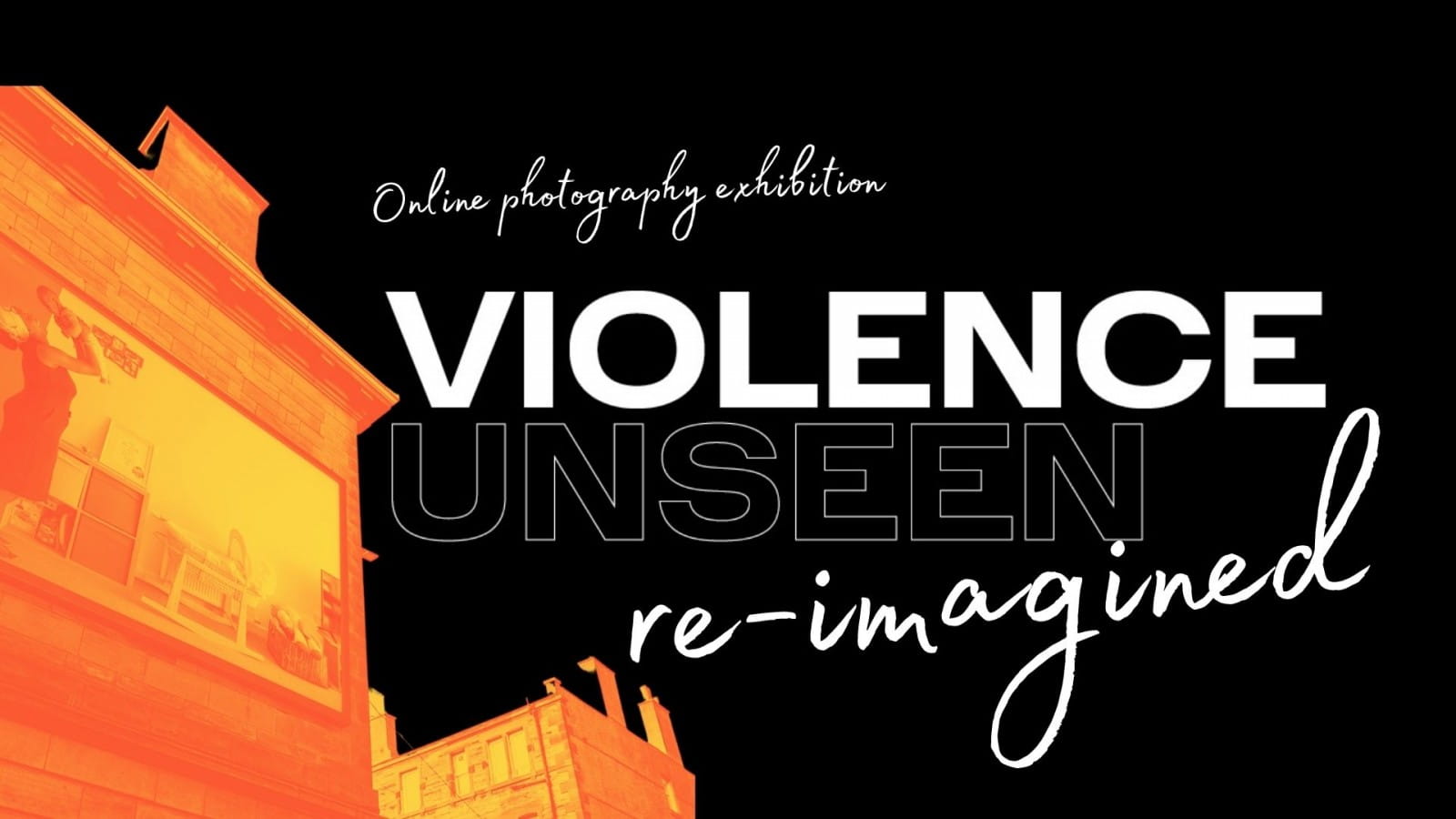
Violence Unseen Re-Imagined is an online photography exhibition that aims to put unacknowledged and often unseen forms of violence against women on the map.
With COVID-19 measures forcing a mass shift to online campaigning in recent months, our travelling Violence Unseen exhibition has taken on new significance and moved online. The Re-Imagined exhibition features Violence Unseen images in public spaces to convey the message that, whilst often hidden, violence against women hasn’t disappeared. In fact, it has been exacerbated by the pandemic.
The forms of violence against women featured in the exhibition are not new, but some groups of women are more vulnerable to this violence. This is especially true for women who face other forms of discrimination, such as women with learning disabilities, women who sell sex, lesbian, gay, bisexual, trans women, and minority ethnic women. Moreover, we know that lockdown has acted as an enabler for perpetrators and made violence against women even less visible to the public eye.
The images used in this exhibition were originally created by Alicia Bruce, then re-imagined and ‘digitally painted’ onto the city landscapes by the visual artist Szymon Felkel.
Before the pandemic curtailed the Violence Unseen exhibition’s travels, it was displayed in around 40 locations across Scotland and seen by around 2000 people.
Our virtual exhibition is now closed, but you can see the the images and the content of the exhibition below.
Please note that some of the content in this exhibition deals with sexual violence, abuse and exploitation, which some people might find upsetting. Some of the women featured in the pictures are models.
List of helplines for anyone who lives in Scotland is available HERE
Image title: Diane Abbott - Member of Parliament
Image description: Billboard on a street next to a multistorey car park. Billboard: white background with faded grey image of the Houses of Parliament and the Thames. MP Diane Abbott stands front left in black and white.
Diane Abbot MP received the highest proportion of abusive tweets of all MPs, but even without including tweets directed at her, the other 19 minority ethnic women MPs still received 35% more abusive tweets than their white colleagues (Amnesty) https://www.amnesty.org.uk/online-violence-women-mps
Intersectional discrimination is rife in politics; minority ethnic women MPs are still fighting to have their voices heard, and their seats at the table. The 2019 election brought record numbers of minority ethnic and women MPs. However, Scotland still has no minority ethnic MPs.
With the Scottish election coming up in 2021, it is worth noting that Violence Against Women in Politics and in Elections (VAWIE) is a violation of civil, political, and human rights.
VAWIE affects women’s civic and political right to participate as voters, candidates, election officials, activists, and political party leaders. It undermines free, fair, and inclusive democratic processes.
VAWIE exists at the crossroads of political violence and gender-based violence, targeting women who participate in public or political life specifically because they are women and often in distinctly gendered ways.
Until recently, political and electoral violence have been viewed as gender-neutral concepts. However, these forms of violence are, in fact, highly gendered in their motives, forms, and impacts.
VAWIE-Online is a means to silence women who publicly engage in political life through fear, shame and intimidation. This is different to the online violence and harassment experienced by men in politics in its underlying intent, multiplied impact, frequency, form, and content.
Check Violence Against Women in Elections Online: A Social Media Analysis Tool for more information on how to measure the gendered aspects and understand the drivers of online election violence against women :https://bit.ly/379jOtw
Quote and model - Diane Abbott, MP for Hackney North and Stoke Newington & Shadow Home Secretary
Statistics - Amnesty International UK - Unsocial Media: Tracking Twitter Abuse against Women MPs
Image title : Mridul Wadhwa
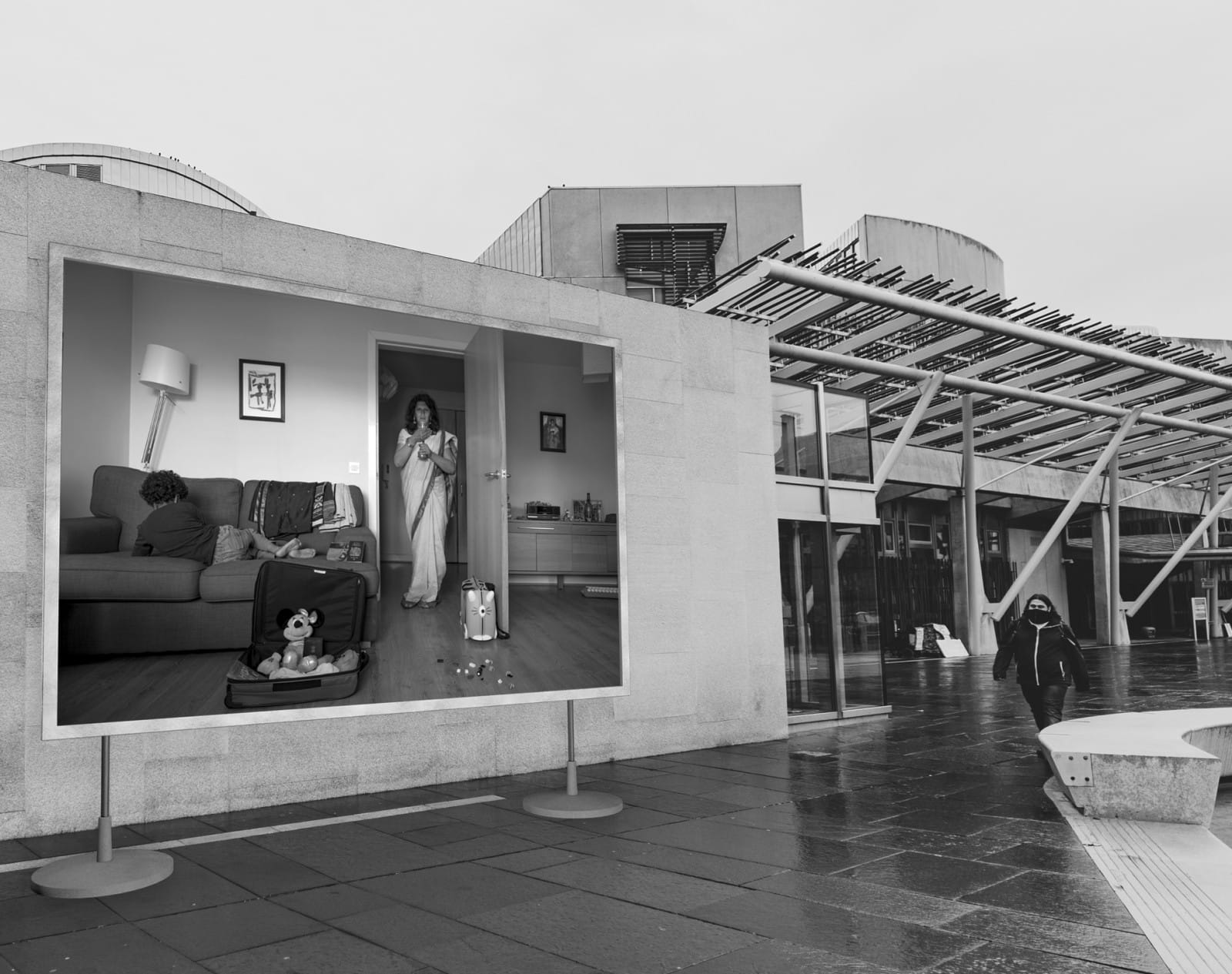
Image description: Billboard on the side of Scottish Parliament building, woman walking across the path beside the board. Billboard: black and white image of a living room, on the left a child is lying on a sofa facing away from the camera, an open suitcase in front of the sofa with Minnie Mouse toy inside, in the centre a door is held open by another suitcase with pieces of Lego on the floor in front of it. Centre, in the doorframe, a woman wearing a Sari holds a candle between her hands, up to her face.
‘The outsider everywhere: Trans, woman and Migrant. Identities, so beautifully one in me yet so oppressive in the hands of the powerful. Trans women live under the same system of patriarchy as other women. Though our experiences will differ, many of our needs overlap, have the same root and require the same solution - gender equality.’ - Mridul Wadhwa
83% of trans women have experienced hate crime at some point in their lives; like all women, trans women also experience domestic abuse, sexual violence and other forms of violence against women.
Trans and non-binary rights are integral to, and contribute to feminism. Trans women have long been part of the women’s movement through their support, voluntary work and as staff members. Violence against women, homophobia and transphobia are all rooted in misogyny.
Mridul Wadhwa - ‘I was born in India and first came to Scotland in 2004 to go to University. Since graduating, I have worked in the violence against women sector mainly with Black Minority Ethnic and immigrant women. These days I work at Forth Valley Rape Crisis Centre.
As a trans and immigrant woman, I am very conscious of my experience of being the eternal minority but I have acquired the ability to influence. I am interested in ensuring that young women with similar experiences as me don’t have to question their right to contribute and participate in our society. I am passionate about campaigning for better rights for women and others with insecure immigration status. Both Oprah Winfrey and my maternal grandmother are my inspiration. They taught me the joys of fearlessness.’
Scottish Trans provide valuable information and links to support groups across Scotland for trans people https://www.scottishtrans.org/support/.
Shakti Women’s Aid provide support services for Minority Ethnic, Refugee and Migrant women. During the pandemic they aren’t operating a face-to-face service, but are working over the phone, WhatsApp, email, and Facetime. Their number is: 0131 475 2399
Rape Crisis Scotland have also been working tirelessly during the pandemic. They run a national helpline at 08088 01 03 02, or by email at support@rapecrisisscotland.org.uk, or by text for initial contact, information, and signposting 07537 410 027
Picture developed in collaboration with Shakti Women's Aid & Rape Crisis
Quote and model - Mridul Wadhwa - Indian-born trans woman and equality campaigner
Data: Equality Network, Scottish Trans (2017) - Scottish LGBTI Hate Crime Report
Image title: Fatou Baldeh
 Image description: Billboard on the side of a building on a street corner. Billboard: black and white image with cupboard, box, and cot in background and woman front right holding her baby in the air and smiling at it.
Image description: Billboard on the side of a building on a street corner. Billboard: black and white image with cupboard, box, and cot in background and woman front right holding her baby in the air and smiling at it.
They thought if you weren't cut, you're going to be talked about, you're going to be stigmatised, no-one is going to marry you. And here I was thinking; 'Do I care about the marriage part, or do I care about their health? Do I want them to suffer what I've suffered? Do I want them to go through what I go through?' No way.’
“Due to the pandemic, it has been impossible to engage as many women and girls in realising their sexual and reproductive health and rights as I would have wanted to this year” – Fatou Baldeh
24,420 individual women and girls, who have - between April 2015 and March 2020 - had a total of 52,050 attendances where FGM was identified.- The FGM Enhanced Dataset (England only)
As many as 137,000 girls in the UK are affected by female genital mutilation (FGM) every year. FGM is a form of control of women’s sexuality and an expression of men’s sense of ownership of women. These crimes are neither religious nor culturally specific and anyone, from anywhere, may be affected. The World Health Organisation estimates that around 140 million women from 29 countries worldwide have been affected by FGM and that every year another three million girls become at risk of the procedure, which either partially or wholly removes or injures their genitalia, for non-medical reasons.
Fatou Baldeh is a Gambian-born activist involved in the campaign to end FGM. She has an MSc. in Sexual and Reproductive Health and Fatou has an MSc in Sexual and Reproductive Health and is the Founder & CEO Women In Liberation and Leadership-WILL. She experienced FGM at age 7.
Shakti Women's Aid
Shakti Women’s Aid helps black, Asian and minority ethnic (BAME) women, children, and young people experiencing, or who have experienced, domestic abuse from a partner, ex-partner, and/or other members of the household. Shakti provides training and consultancy for agencies working with BAME women, children, and young people.
www.shaktiedinburgh.co.uk
The @NSPCC run a Female Genital Mutilation helpline 0800 028 3550
@ShaktiEdinburgh are also contactable in Edinburgh (0131 475 2399), Fife (01383 732 289), Dundee (01382 207 095) and Forth Valley (07757-035-794)
More information is available here: https://shaktiedinburgh.co.uk/getting-help/
Why COVID-19 has placed millions more girls at risk of FGM:
Picture developed in collaboration with Shakti Women's Aid
Quote and model - Fatou Baldeh, FGM survivor and campaigner
Data - City University London - Prevalence of Female Genital Mutilation Study
Image title: Margaret
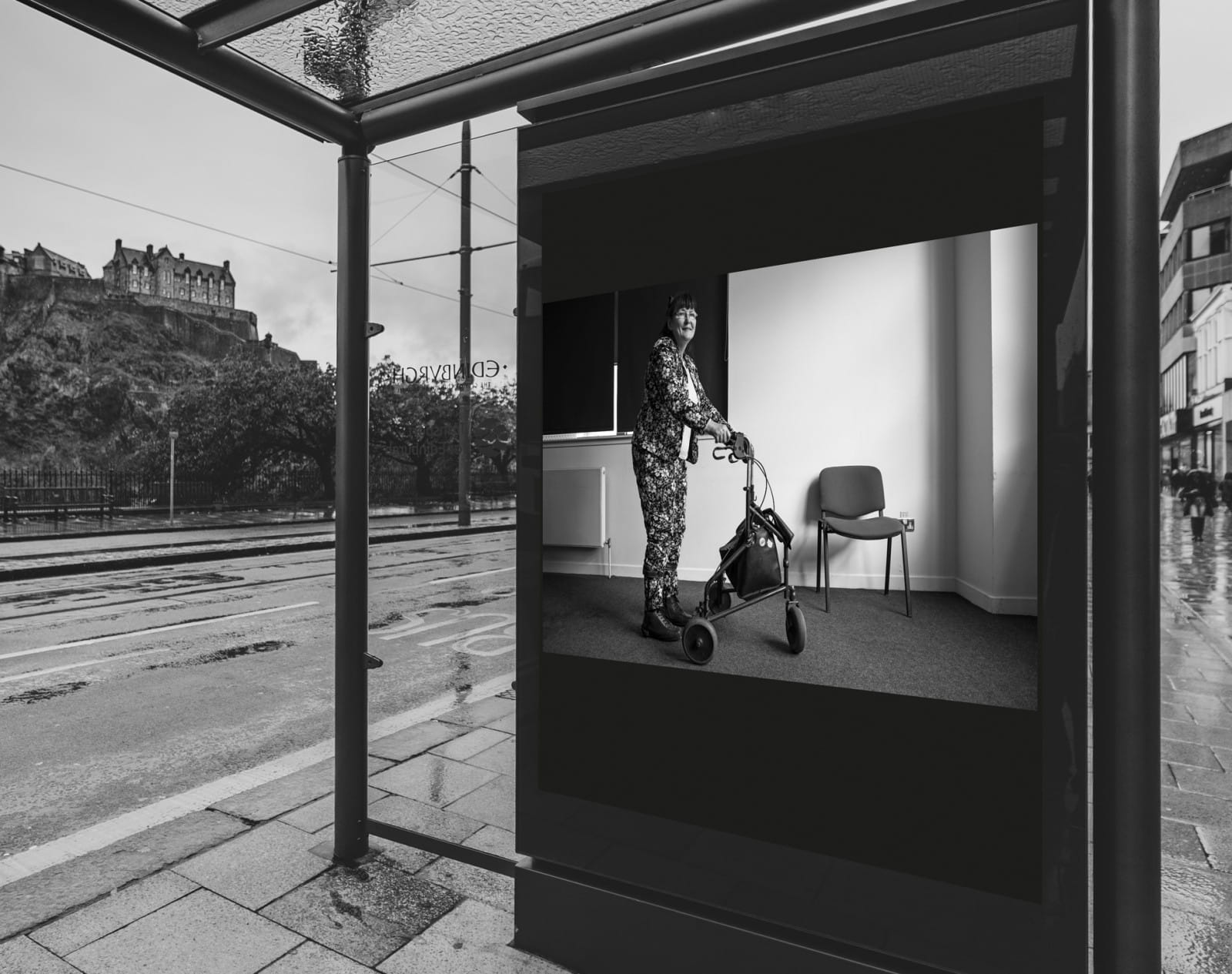
Image description: image on the inside of a bus stop on Princes Street in Edinburgh, with view of the street and the castle in the background. Image: black and white image with a single chair in the background and a window with blinds hanging over it. Front centre-left is a woman in a matching flowery jacket and trousers, with a walking aid.
‘How are you supposed to get anyone to believe you if everybody thinks he is a ‘Saint’ because of how he helps you ?’ - Wise Women, Daisie project: violence against disabled women survey
Disabled women are twice as likely to experience men’s violence as non-disabled women.
73% of disabled women have experienced domestic abuse.
Almost one in two disabled women will be abused in their lifetime at the hands of their partner, family or carer. Some of their experiences fit within traditional definitions of domestic abuse, some do not. For a disabled woman, domestic abuse can take on unique, complex forms, often specifically related to their disability such as having medicine withheld, being physically assaulted or deliberately not assisted to go to the toilet. Humiliation and belittling are often part of the abuse, which can reinforce any existing feelings of low self-esteem and make women less likely to report violence.
People First (Scotland) works to support people with learning difficulties to have more choice and control over their lives and works for the human rights of people who have the label of Learning Disability. People First (Scotland) is controlled by its members, who all identify themselves in that way. People First (Scotland) campaigns to establish and protect the same freedom, choice, dignity and control held by other citizens across all areas of life. Formed by the active membership in 1989, People First was established as a Charity in its own right in 1997 with the express purpose of enabling people with learning disabilities in Scotland to achieve their full potential and specifically to take part in collective self-advocacy and express their thoughts, feelings, preferences and ideas. Also, as a disabled persons’ organisation, People First (Scotland) is set up to represent the views and interest of people with learning disabilities and does this effectively, across a wide range of settings.
www.peoplefirstscotland.org
For disabled women, domestic abuse can take on unique, complex forms, often specifically related to their disability, such as having medicine withheld. (Daisy Project, violence against disabled women survey, 2015, http://www.wisewomen.org.uk/assets/daisie-report-pdf.pdf)
Here is a short video from People First, Scotland’s national organisation of adults with a learning disability in Scotland, about the work they do:
Picture developed in collaboration with People First (Scotland)
Model - Margaret - Member of People First (Scotland) Women's Group
Quote - Wise Women (2015) Daisie project: violence against disabled women survey
Data - Inclusion Scotland - MSP Briefing- Violence Against Disabled Women,
Image title: Michelle
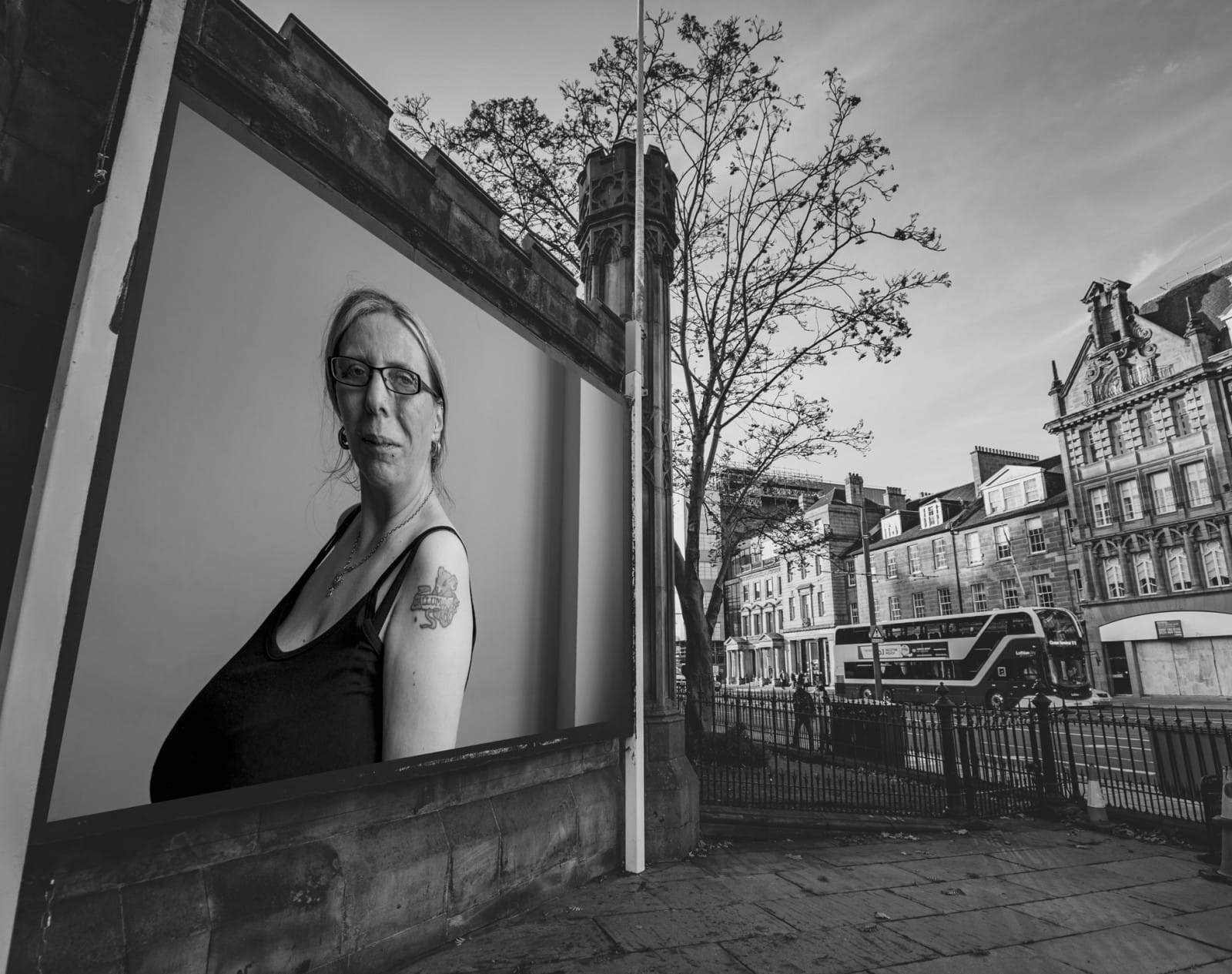
Image description: Billboard on a wall on the corner of a high street with a bus in the background. Billboard: black and white image with blank wall background, woman front left facing the side but looking into the camera.
‘As a disabled woman, society has already deemed me to be inadequate, therefore unable to have any form of relationships, so to have problems regarding violence and abuse is as unthinkable as having a relationship at all.’ - Wise Women, Daisie project: violence against disabled women survey
A lack of education and awareness regarding disabled women’s sexual and reproductive lives leaves them more susceptible to sexual violence, abuse and coercion. Some disabled women report that stigma about disability makes them willing to accept a partner who might mistreat them.
Assumptions are frequently made that disabled women are asexual, over-sexual, or will not have relationships. This results in lack of autonomy to make decisions regarding their sexual and reproductive lives, and lack of freedom of sexual expression and self-determination. Disabled women and girls’ sexuality and gender identity are often heavily policed, denied or restricted. Yet, empirical studies confirm that young disabled women have the same concerns and needs with regard to sexuality and relationships as their peers, and have similar patterns of sexual behaviour.
People First (Scotland) works to support people with learning difficulties to have more choice and control over their lives and works for the human rights of people who have the label of Learning Disability. People First (Scotland) is controlled by its members, who all identify themselves in that way. People First (Scotland) campaigns to establish and protect the same freedom, choice, dignity and control held by other citizens across all areas of life. Formed by the active membership in 1989, People First was established as a Charity in its own right in 1997 with the express purpose of enabling people with learning disabilities in Scotland to achieve their full potential and specifically to take part in collective self-advocacy and express their thoughts, feelings, preferences and ideas. Also, as a disabled persons’ organisation, People First (Scotland) is set up to represent the views and interest of people with learning disabilities and does this effectively, across a wide range of settings.
www.peoplefirstscotland.org
“Some disabled women report that stigma around disability makes them willing to accept a partner who might mistreat them.” (Daisy Project)
Engender conducted some incredible research this year alongside disabled people’s organisations in Scotland, called ‘Disabled women: our bodies, our rights’ https://www.engender.org.uk/content/disabled-women/
Wise Women provide a lot of resources for women, such as personal safety and confidence building courses, and workshops for staff: http://www.wisewomen.org.uk/resources.html
Picture developed in collaboration with People First (Scotland).
Model - Michelle - Member of People First (Scotland) Women's Group
Quote - Wise Women (2015) Daisie project: violence against disabled women survey
Data - Engender (2018) Our Bodies, Our Rights, Education Briefing
Image detail: Katie
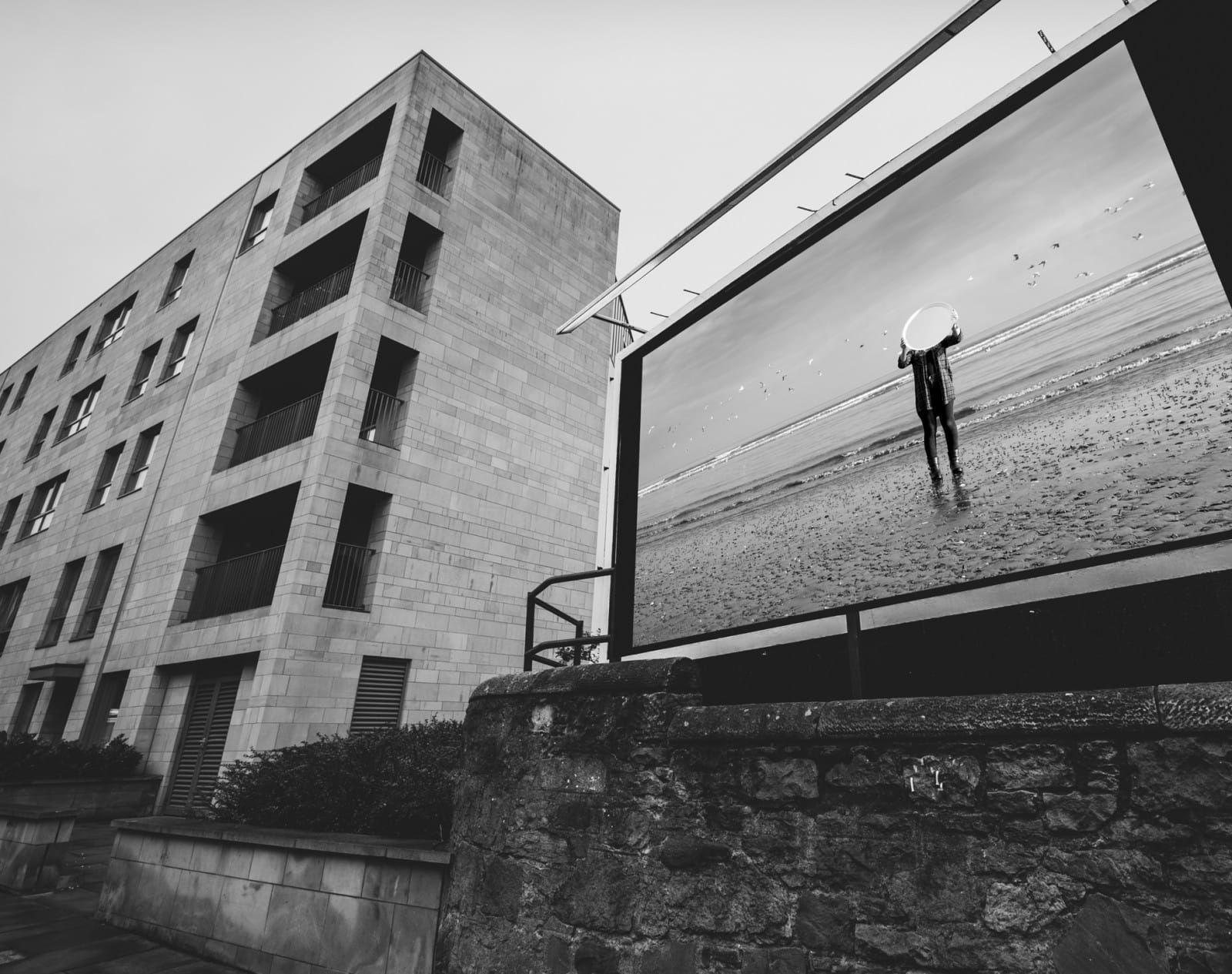
Image description: Billboard on a wall next to a block of flats. Billboard: black and white image of sea and sand, birds cover the sky in the distance and a woman stands front right, holding a white circle in front of her face.
‘The most harmful aspect of prostitution is having to repeatedly endure unwanted sex. It is a space where men can buy women’s consent.’ - Encompass Network
99% of women who sell sex have been victims of violence, with more frequent injuries than workers in occupations considered most dangerous, like mining, forestry and fire fighting.
71% of women who sell sex have experienced physical assaults and 62% have been raped. 89% of them wish to leave prostitution but did not have other options.
A sexual motivation was the primary context of the attach in 4% of cases (57); This is lightly likely to be a significant undercount but it was still the third most common context of demicides. Sexual violence was the third most common primary context for femicides and we believe that in reality the figure will be higher. #FemicideCensus10years
32 women killed had been involved in the sex industry, prostitution, ‘escorting’, and pornogaphy - Femicide Census
Paying for sexual access to women’s bodies is a form of violence against women. It is an expression of a presumed male entitlement to sexual gratification, and exploits women’s lack of economic power. Women who experience multiple disadvantages, such as trans and migrant women, and women with experience of the care system, are more likely to sell sex. There are clear links between the sex industry and the trafficking of women and girls for sex. For most women selling sex is not a free choice, but a response to a lack of other choices. Gender equality is only possible when sexual interactions between women and men are based on free, informed and enthusiastic consent.
CLICK Scotland run an online magazine featuring blogs, podcasts, and a variety of interesting masterclasses aimed at women selling or exchanging sex or images in Scotland https://www.clickmagazine.online/
Women's Support Project
Women’s Support Project is a feminist voluntary organisation, recognised as a Scottish Charity. The project works to raise awareness of the extent, causes and effects of male violence against women, and for improved services for those affected by violence. Key themes in our work have been highlighting the links between different forms of male violence and promoting interagency responses to the abuse of women and children. Women’s Support Project also have a variety of resources, blogs, and research around Commercial Sexual Exploitation on their website
www.womenssupportproject.co.uk
Encompass Network
Encompass is a Scottish network of agencies working with people at risk of becoming involved in, who are currently involved in, or who have exited selling or exchanging sexual activity / commercial sexual exploitation (CSE).
www.encompassnetwork.info
Encompass’s website features a lot of information for those selling sex, including helplines, support networks, and the Encompass Fund for those who have suffered financially during the pandemic https://www.encompassnetwork.info/national-services.html
Picture developed in collaboration with Women's Support Project
Model - Katie
Quote - from Encompass Network
Statistics - Melissa Farley, Risks of Prostitution: When the Person Is the Product , Femicide Census https://www.femicidecensus.org/
Image title: Vonny
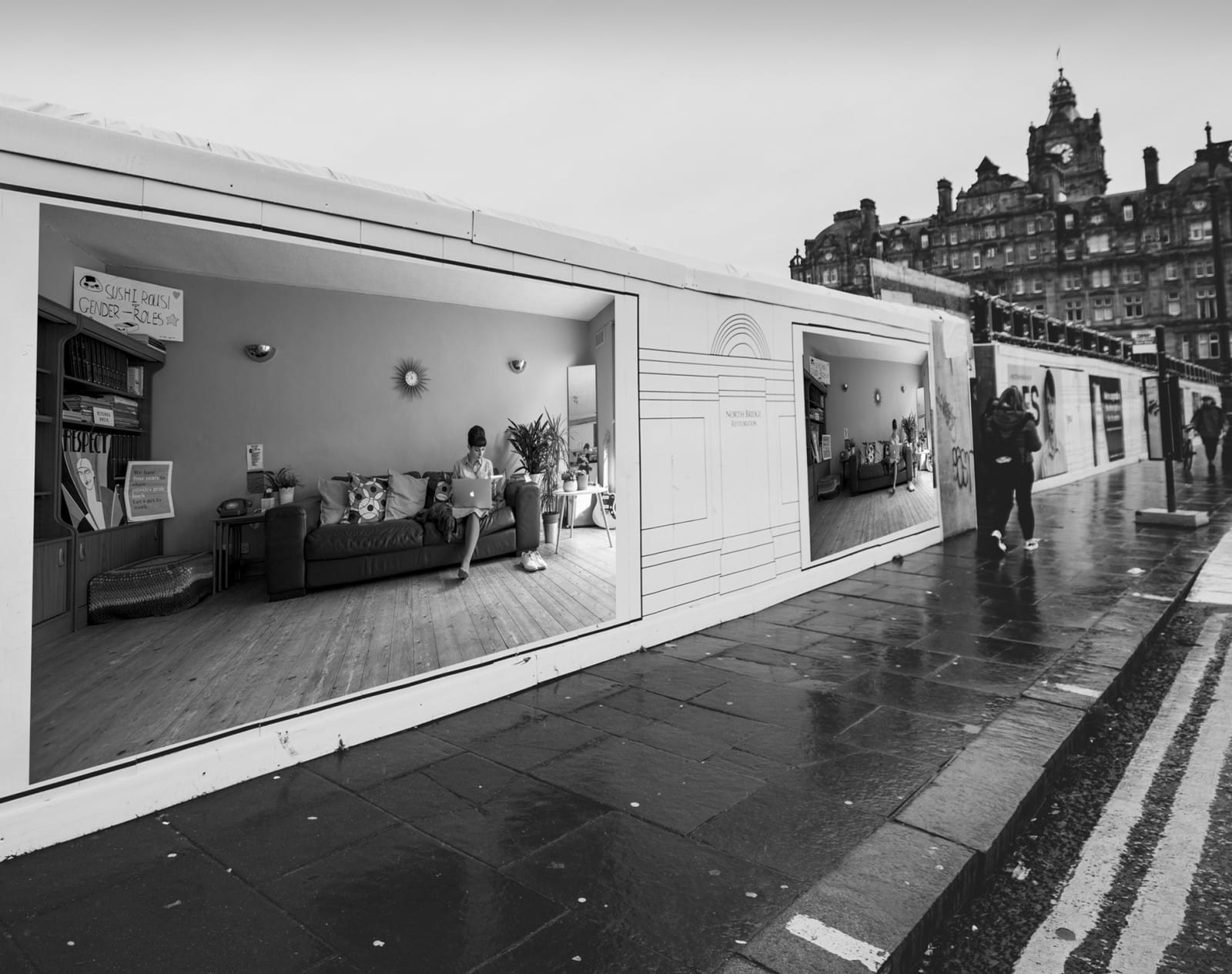
Image description: Billboard on the side of North Bridge with The Balmoral Hotel in the background. Billboard: black and white image of a living room with a sofa in the centre and a woman sat centre right on it. The woman has one left visible and is looking at the laptop on her lap.
‘I had this massive invasion of privacy followed by a horrible backlash. It hurt me in ways I didn’t know I could be hurt. When you’re in the midst of that it’s so painful and so disruptive. It oscillates and affects the rest of your life.’ - Vonny Moyes
So-called ‘revenge porn’ is a digital extension of sexual violence. There are serious long-term consequences to internet harassment, both professional and personal. 70% of employers have rejected applicants due to information found online. 41% of women who had their intimate images shared online receive threats of assault, rape and murder from those viewing their images.
Vonny Moyes is a feminist journalist and activist, weekly columnist for Scotland’s The National, a regular commentator in the Guardian, and head of digital communications for an environment agency. She was heavily involved in grassroots organising during the Scottish independence referendum, and campaigns on gender equality. She was a finalist in Zero Tolerance the Write to End Violence Against Women Awards in 2016 and 2017.
The Revenge Porn helpline has experienced a significant increase in traffic since the start of the pandemic, and there are fears that this will become the ‘new normal’.
‘Women bear brunt of online abuse as world goes digital in pandemic’:
The International Women’s Media Foundation said 58% of nearly 600 female journalists interviewed in 2018 had been threatened or harassed in person, and 1 in 10 had received death threats
‘Sexting Has Nothing to do with Consent’ talks about the use of sexting as defendant evidence in rape trials, and the new CPS Prosecution guidance that states that “sending an intimate picture isn’t blanket consent of sex or anything else”:
Model - Vonny Moyes - journalist and feminist activist
Quote - Vonny Moyes for INews (2017) The Women who refuse to be silenced by online abuse - by Rebecca Monks
Data - Amnesty International, Toxic Twitter - Psychological harms of violence and abuse against women online,
D.K. Citron, “Hate Crimes in Cyberspace”
Photos by : Alicia Bruce - www.aliciabruce.co.uk
Tweet @picturemaking
Instagram @aliciabrucephoto
and our digital re-imaginer
Re-imagining : Szymon Felkel - www.saymoonstudio.com
Instagram @szymon_felkel
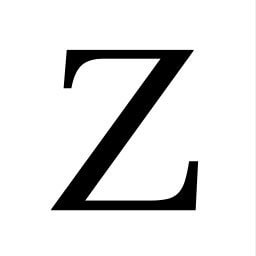
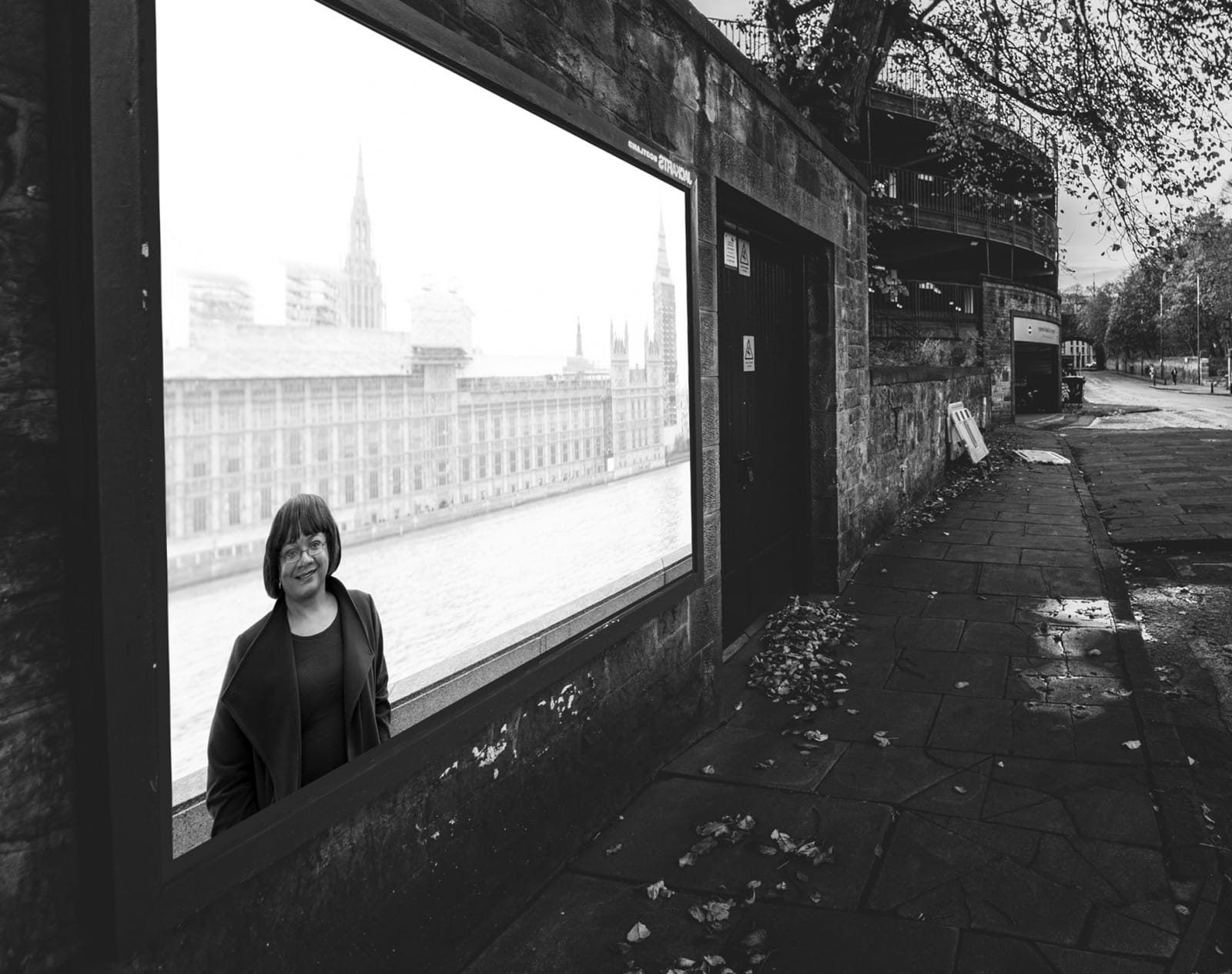
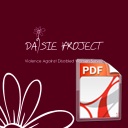 Daisie Project Violence Against Disabled Women Survey
Daisie Project Violence Against Disabled Women Survey Information for VAWP's Violence Unseen Travelling Exhibition
Information for VAWP's Violence Unseen Travelling Exhibition Violence Unseen Brochure
Violence Unseen Brochure Violence Unseen Exhibition Manual / Terms and Conditions of Hire
Violence Unseen Exhibition Manual / Terms and Conditions of Hire